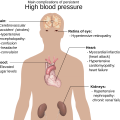Table of Contents
Can anxiety cause hypertension? Stress and anxiety might not be automatically linked with hypertension; but taking actions to minimize your anxiety can definitely improve your basic health; including your high blood pressure. Can anxiety cause hypertension? Stressful circumstances can create your high blood pressure to surge temporarily but prolonged stress and anxiety could cause chronic hypertension. This is because short-term stress-related spikes can accumulate over time and this could trigger high blood. In this article, you’ll learn the answer to the question; can anxiety cause hypertension?
Is Anxiety Causing Your Blood Pressure to Go Up?
Can anxiety cause hypertension? Well, not always. While periods of high anxiousness or panic attacks can cause short-term high blood pressure; people that have anxiety disorders are simply as likely to create hypertension as those who do not.
If you always get stressed – out or experience an extreme form of anxiety; these can trigger blood vessel damages and placed stress on the heart as well as kidneys; so you end up with the exact same health problems as those diagnosed with hypertension. An additional problem is that people with anxiety conditions tend to do other unhealthy things to alleviate their symptoms. Things like smoking cigarettes, alcohol consumption alcohol; as well as overeating are all typical ways of dealing with anxiousness; which can definitely increase the likelihood of hypertension over time.
Quick Fix
Did you know that exercising just thrice a week for half an hour or more, can reduce your high blood? And also if you have hypertension, doing tasks that can reduce your stress and improve your health; and wellness can make a lasting difference in handling hypertension in the long run.
Anxiety and High Blood
Can anxiety cause hypertension? When you’re in a demanding circumstance, your body produces different kinds of hormones. These hormonal agents temporarily enhance your blood stress by causing your heart to quickly pump out blood to the body which can also put pressure to your blood vessels. There’s no proof that anxiety by itself causes long-term hypertension. However responding to anxiety by harmful means can increase the threat of not just hypertension, but also cardiovascular diseases and even stroke.
Factors that can contribute to high blood pressure relating to handling anxiety include cigarette smoking, drinking too much alcohol, eating junk foods, clinical depression, and even isolation from friends and family.
No Direct Connection
That being said, there’s no evidence that such factors are directly connected to hypertension. But, the hormones your body makes when you’re emotionally worried might damage your arteries, and therefore bring about heart disease. Some signs, like those triggered by clinical depression, might cause you to not take the right medications in order to manage high blood pressure or heart – related conditions.
High blood pressure caused by stress can definitely cause spikes. However, when your stress goes away, your blood pressure returns to regular. Nevertheless, even frequent, temporary spikes in high blood pressure can damage your capillary, heart and kidneys in a means comparable to long-term hypertension.
How to Reduce Anxiety
Can anxiety cause hypertension? Reducing your anxiety may not always lower your blood pressure but it can surely help in keeping you calm – and over time will help you manage your hypertension better. Making use of techniques to handle your stress and anxiety can help enhance your health and wellness as well. Mastering how to handle stress and anxiety and applying the techniques below can result in healthy behavior changes, and over time help decrease your high blood pressure.
Tips in Managing Anxiety
Simplify your schedule
Make sure to take a few minutes to check your calendar and go over your to – do list before you begin your day. That way you can prioritize what’s important and not feel rushed which can cause anxiety and stress later on. Schedule much less time for activities that are not helpful, or eliminate them totally.
Breathe to relax
Taking deep and also slow-moving breaths can definitely calm your nerves and it also works if you’re feeling that anxiety and stress is building up.
Exercise
Exercise is a natural stress – buster. Just be sure to get your medical professional’s approval before beginning a new exercise program, particularly if you’ve been detected with high blood pressure.
Try yoga exercise and meditation
Yoga exercise as well as meditation strengthens your body and mind, and also help you loosen up. These techniques additionally may reduce your systolic blood stress over time.
Get some sleep and shift your perspective
It will definitely help if you regularly sleep six to eight hours a day. This will be good for your overall health and mental wellness. When it comes to dealing with problems, try to also shift your perspective. Acknowledge your feelings about the circumstance, and after that concentrate on finding the positive side of things. In doing this, you can lessen being stress and focus more on finding better solutions. The goal is to uncover what works for you. Be prepared and be open to experimenting. Try everything, do something about it and you may just unlock great benefits for your condition.
Do I Get White Coat Hypertension When I’m Anxious?
Whitecoat high blood pressure usually occurs among patients who are scheduled to visit their doctors. They have normal blood pressure at home, but when they see a medical professional for some reason, their blood pressure spikes up. Some researchers say it can be connected to anxiousness just being around a physician. It’s even more common in females than in males, and also takes place more frequently in those with anxiety.
Can anxiety cause hypertension? Usually, white coat high blood pressure does not create any kind of lasting problems, but it might lead you to think that you have high blood pressure when you do not. This is one of the reasons why medical professionals commonly suggest that even if you obtain your high blood pressure read at your workplace, you need to also get a blood pressure screen at your home. Differences in your at-home and in-office analyses can greatly affect your doctor’s treatment referrals. As you log your blood pressure in time, you’ll be able to tell what’s “normal” and your physician will be able to have a somewhat accurate reading.






 I love to write medical education books. My books are written for everyone in an easy to read and understandable style.
I love to write medical education books. My books are written for everyone in an easy to read and understandable style.